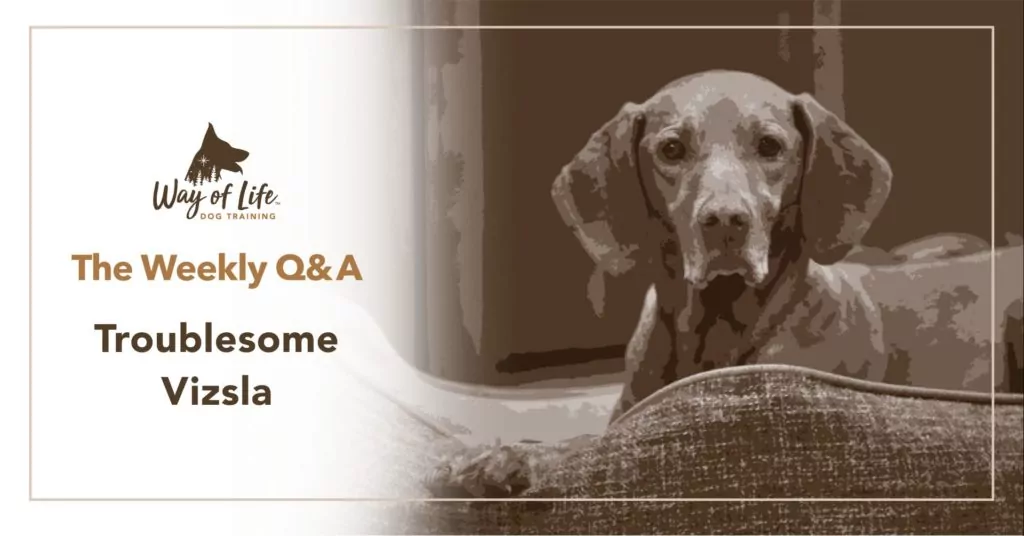
Q: I am and experienced dog owner and I have two Vizslas ages two and four. I am having some challenges with my younger dog, a 2-year-old neutered male. I never did any training with him as I had a hard time finding classes during COVID. As a result he is difficult to walk, he barks and goes crazy if he sees any other dogs (or squirrels). He lacks basic socialization but I also don’t feel that I have the right tools to deal with him when he gets excited. He also lacks off-leash recall and other basic training. I would like to work with him alone as his sister is a distraction and she is better behaved especially when she’s not around him.
A: Many dog owners feel the same as you do, believing that the lack of training opportunities and the restrictions on socialization created by the recent pandemic are to blame for the difficulties they are having with their dogs. This is somewhat true but if you’ve been following us for some time, you know that we emphasize way of life as a determinant of behavior.
Way of life involves socialization of course, but not as defined by the mainstream thinking which wants us blasting our dogs with exposures to all sorts of people and animals. Our approach to socialization is gradual and that’s why it is successful. It begins with what we call primordial socialization, and that is simply the socialization between you and your new dog and we delay introducing and integrating our new dog with the other dogs in the house. This is in part a reason you’ve been having difficulties with your dogs whereby they’re both better behaved when separated. That doesn’t mean you can’t have them together at some point but both dogs are presently telling you to take it easy with the integration.
Another element in the way of life is how we manage space and boundaries. This speaks to whether you have your dogs on a schedule of sorts and whether the dogs are contained for a few hours each day, able to not only catch a break from each but from us as well. It can mean different things when dogs are reactive and hard to handle – sometimes it’s a lack of sufficient privacy and rest. In other instances, it could be a dog lacking in sufficient opportunities to channel his innate drives. Therefore, drive development is another aspect of the way of life that I can’t emphasize enough.
It’s all well and good to want our dogs mannered but that’s a lot easier for them to produce if their natural drives and instincts are fulfilled. Consider how much you play with your dog and engage him with food and toys. Going crazy after squirrels and even after dogs suggests to me that on some level, there is an energy in your dog that needs to be channeled constructively. I hope you research different canine sports to harness these natural drives.
What happens when your way of life is in order is that you organically create a well behaved dog. Instead of thinking you need to be in a class with other students to teach your dog how to behave, create a way of life that makes sense to the dog, helps him relax, and therefore become thoughtful and well-behaved.